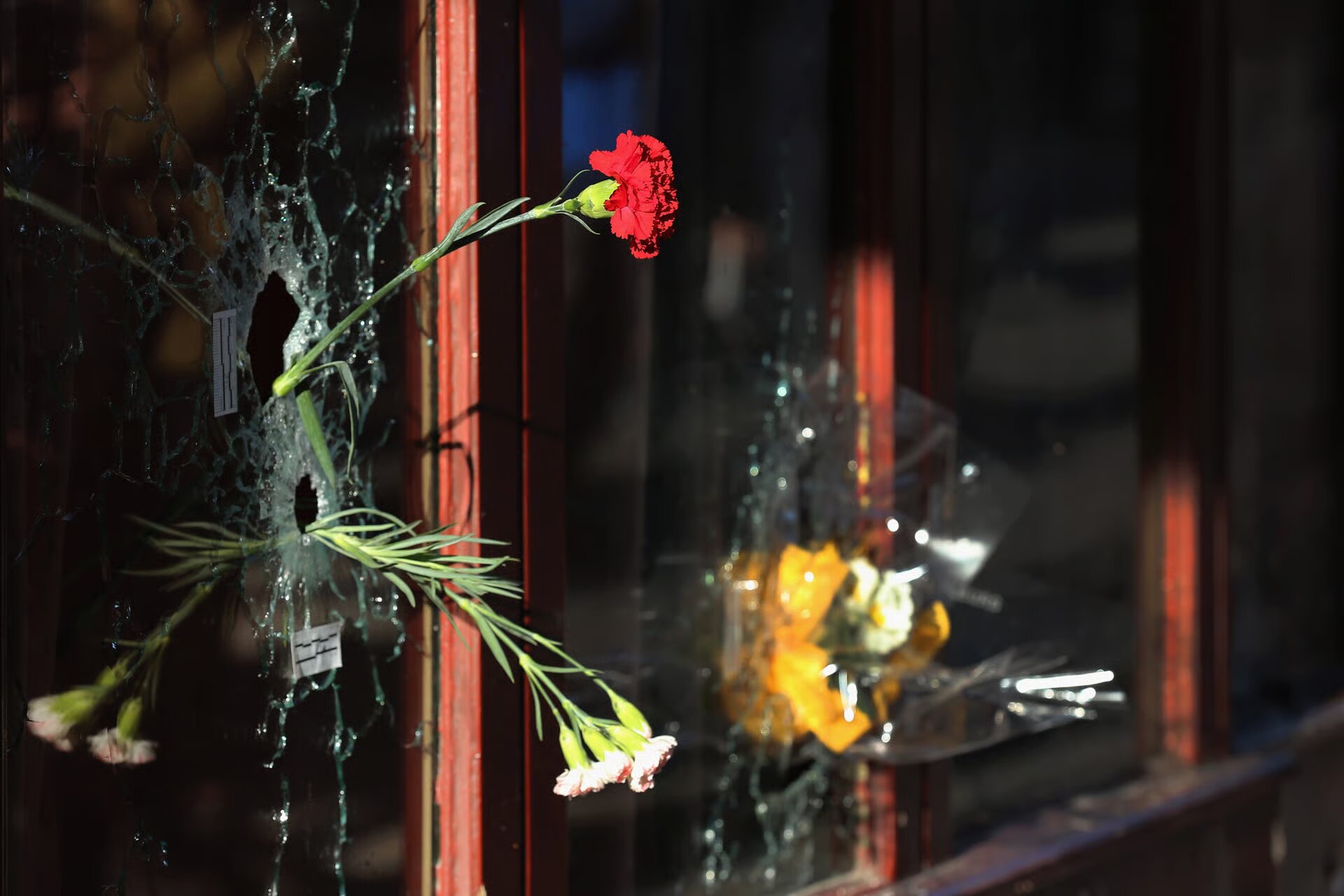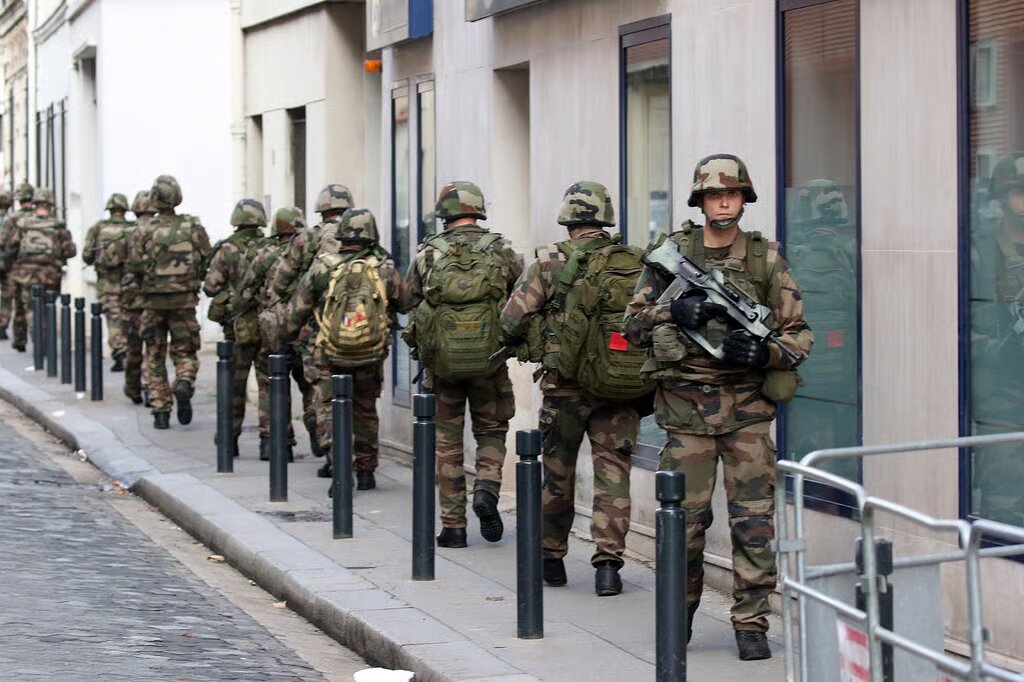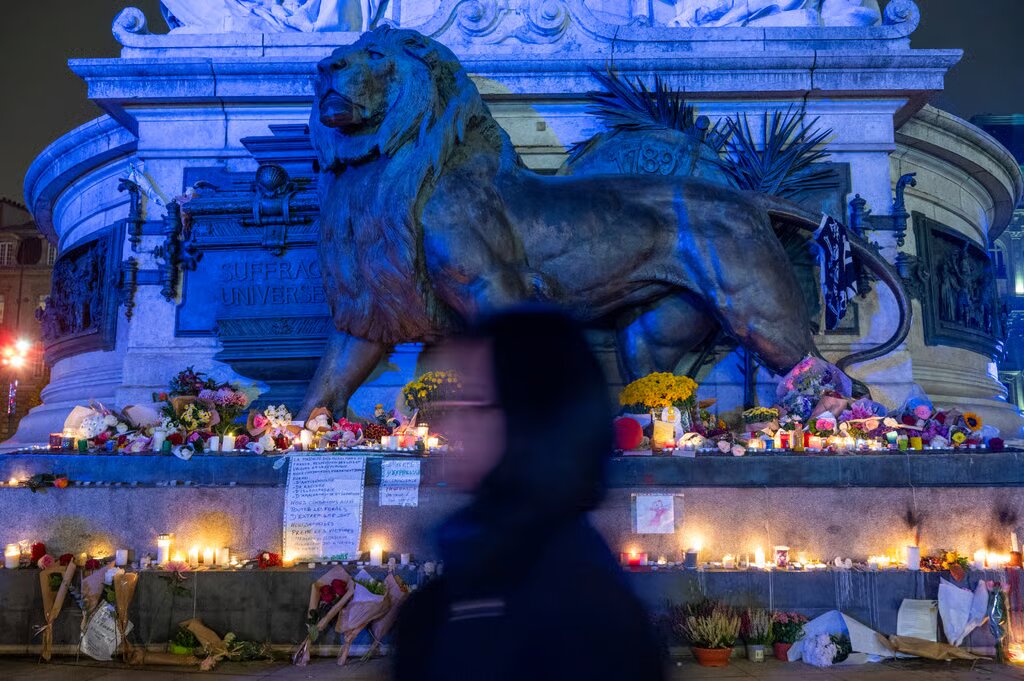The tragedy continues to shape France’s laws and daily life.

PARIS — The scene at Le Carillon before kickoff when football powerhouses Paris Saint-Germain and Bayern Munich faced off earlier this month probably looked a lot like it did 10 years ago — right before 15 people were gunned down at the bar while watching another Franco-German soccer match.
Perhaps the only difference was that the crowd on the terrace of the Parisian bar in 2025 were themselves being watched by an armada of surveillance cameras installed in the aftermath of the Nov. 13, 2015 terror attacks.
Though it’s been a decade since the tragedy that left more than 130 people dead across Paris and environs, silent traces of a national trauma — such as the omnipresence of cameras — still shape France.
Advertisement
Advertisement
The attacks forever changed the country and its politics, tipping the balance of protecting civil liberties versus ensuring public safety in favor of the latter.
Since 2015, France has passed a slew of laws meant to ensure such an event could never happen again. Members of parliament have expanded the state’s surveillance powers and its ability to impose restrictive measures without prior judicial approval. They’ve also reshaped France’s immigration policy and oversight of religious — particularly Muslim — organizations.
“Successive governments — left-wing or right-wing — have reinforced the legal arsenal on anti-terror policy, and it’ll likely continue in the future to remain as close as possible to emerging challenges,” said Jean-Michel Fauvergue, who in 2015 was the head of the police RAID unit — France’s equivalent of SWAT.

Proponents of what Fauvergue, who served as a lawmaker for President Emmanuel Macron’s party from 2017 to 2022, described as France’s “beautiful shield providing excellent protection” argue that it has helped prevent mass casualty incidents since the attack in Nice in 2016.
Nicolas Lerner, the head of France’s foreign intelligence service, said in a radio interview Monday that while authorities remain extremely vigilant, the probability of another massive, complex attack organized by extremists abroad has “considerably diminished.” A former adviser to another interior minister, granted anonymity as they were not authorized to discuss the issue publicly, reiterated that sentiment to POLITICO.
After going so many years without a major terror incident, it’s unlikely any politician will try to pare back this new reality of heightened alerts, increased surveillance and the omnipresence of armed soldiers.
Advertisement
Advertisement
“History has shown that it never happens, that governments go back and scrap measures taken in the name of anti-terrorism or security,” said Julien Fragnon, a French political scientist who researches anti-terror policies.
“There’s a ratchet effect: The law, on the scale of gradation, goes up a notch … and no politician wants to go back on it for fear that future attacks could be blamed on them.”
Window of opportunity
Fragnon said it’s common for governments to pass stricter anti-terror policies, previously seen as unpopular, during a “window of opportunity” following a devastating attack, when worried populations are looking for security assurances.
That appears to be what happened in France.
A law passed in 2017 gave the government the ability to enact certain security measures that were only possible during a state of emergency, including setting up security perimeters around public events, as well as ordering movement restrictions for individuals and the closure of places of worship suspected of promoting extremism, both without prior judicial approval.
The “separatism bill” proposed in 2020, which tightened rules on foreign funding of faith-based groups and introduced new offenses against incitement to hatred, was highly controversial and criticized as anti-Muslim. But even so, the legislation was approved the following year with support from across the political spectrum. Opinion polls at the time also showed widespread public support for measures combating “separatism.”
Advertisement
Advertisement
French voters today remain concerned about the threat of terrorism, and are overwhelmingly supportive of the idea that public safety requires some sacrifice when it comes to personal freedoms, according to a survey from respected pollster Elabe conducted in July.
“Even with an open question and no suggested answers on what are the biggest threats they face, French people will spontaneously mention terrorism,” said Frédéric Dabi, director general of the polling firm IFOP.
Marine Le Pen’s National Rally, which has largely approved of measures directly strengthening the fight against the terror threat, wants to go a step further by “banning all expression of Islamist thought in France,” said a high-ranking official from the far-right party, who was granted anonymity to speak candidly.

Critics of the status quo, like lawmaker Pouria Amirshahi, fear that an illiberal government could one day use tools aimed at security threats to target political opponents — especially in France, given the National Rally’s steady rise in recent decades.
Amirshahi was among only six of 577 lawmakers to vote against extending the state of emergency six days after the Nov. 13 attack, due to concerns that France would be “weakening the rule of law” by handing the executive more ability to bypass the judiciary.
He said France should have taken inspiration from Norway’s decision to respond to the 2011 attack there with “more democracy, more openness and more humanity.”
“In all countries that have shifted toward illiberalism — both historically and today, in Hungary and Argentina — heavy security measures came first to prepare the ground,” Amirshahi said. “There are currently no bills to roll back the measures adopted after 2015, and little concern for rights and liberties among legislators.”
“The headwinds against us are extremely strong,” he concluded.
